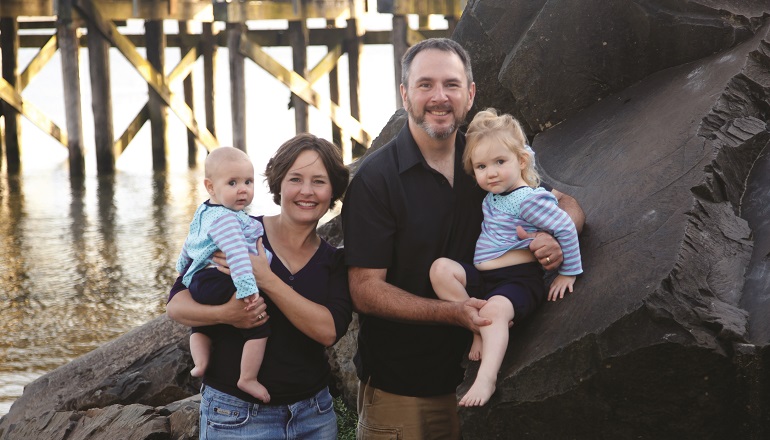Before Becoming a Mom…
I have talked with many people who have adopted or used donor eggs or sperm, and they all say the same thing: “It doesn’t matter at all! This is our child one thousand percent.” Really? Does it not matter at all? So why do we try so hard to have biological children? Perhaps I’ll end up feeling just like these parents in the end, but I can’t quite believe it from this side of the fence.
The full force of not having your biological baby doesn’t really hit you until it is your genes on the chopping block. I know this because we experimented with donor sperm, and it felt very different. I remember noticing how much I loved Brad’s warm, brown eyes and beautiful eyelashes and how sad I would feel if our baby didn’t have those brown eyes. Yet, I also noticed how different he was from the rest of his family, in terms of personality, and thought, maybe it isn’t the genes that matter.
Now it is my turn. And I am sad. I am sad that my genes won’t be a part of our child’s life. I believe the literature that suggests that 50 to 70 percent of who we are—our personality, intelligence, interests, behaviors—comes from our genes. When I thought about raising a child, I pictured a baby that was half me and half Brad. Of course, the baby would inherit the best of each of us: my love of solving problems, Brad’s tenaciousness, my smile, Brad’s eyes.
Yes, I know that is fantasy. I know no one gets a “mini-me,” but most people let that fantasy go little by little as they discover their child won’t be in the gifted program, like Mom was, or doesn’t like to dance the way Dad always envisioned. For me, that fantasy dissolved with one sentence from our doctor. It was that sudden impact that left me questioning why I wanted a child in the first place.
Since Becoming a Mom…
A year-and-a-half after giving birth to my oldest daughter, Leah*, I still think about the fact that she came from a donor egg nearly every day. This may be unusual, but it is the way I am. When I look at her, I see this beautiful baby, whom I love, but I also see eyes (that I adore) that are clearly not from Brad nor me nor anyone in our families. Because Leah has a known donor, I know exactly where her eyes come from.
I still ache to have a genetic child. I thought the feeling would evaporate as soon as Leah was born. Now I think my acceptance of the situation will grow, but it is something that will always be with me.
When my daughter was new, and still pretty generic, I found I still wished I could redo everything—see a reproductive endocrinologist sooner, try IVF earlier, or one more time. Now that she is a little person, it isn’t so easy. If someone came to me right now and said that I could go back in time and be guaranteed a (relatively) easy conception and birth, I might be tempted. It would all sound very good until the moment I held Leah for the last time. I would have to say good-bye and know that I would be un-making her and un-knowing her.
I delight in my daughter, and I want to give her the world. I spend 20 minutes trying to get a smile and find a fleeting one more than worth the effort. I wake up in the morning, still tired, look over at the one responsible for waking me up every one to two hours (we are working to break that habit), and am ready, eager, and excited to do it all over again. There have probably been more than 10 billion babies born on this planet, yet, when Leah learns something new, it is like the first time it has happened in the universe. And so, I wouldn’t redo anything. I love her too much. She is the child I want to see grow up.
My unresolved issues about using donor eggs are about me, not her. My goal now is to make sure they never become her issues. One day, not too long ago, I was putting my daughter to bed after a particularly bad “poor me” moment in terms of never having a genetic baby. I was physically afraid of her. The responsibility of helping this little grub of a human to grow up happy and healthy felt so enormous. How can I make sure my sense of loss never negatively affects her? I don’t think a five-year-old could ever see me sad about that loss and not assume that she wasn’t enough.
*Names have been changed to protect privacy.



